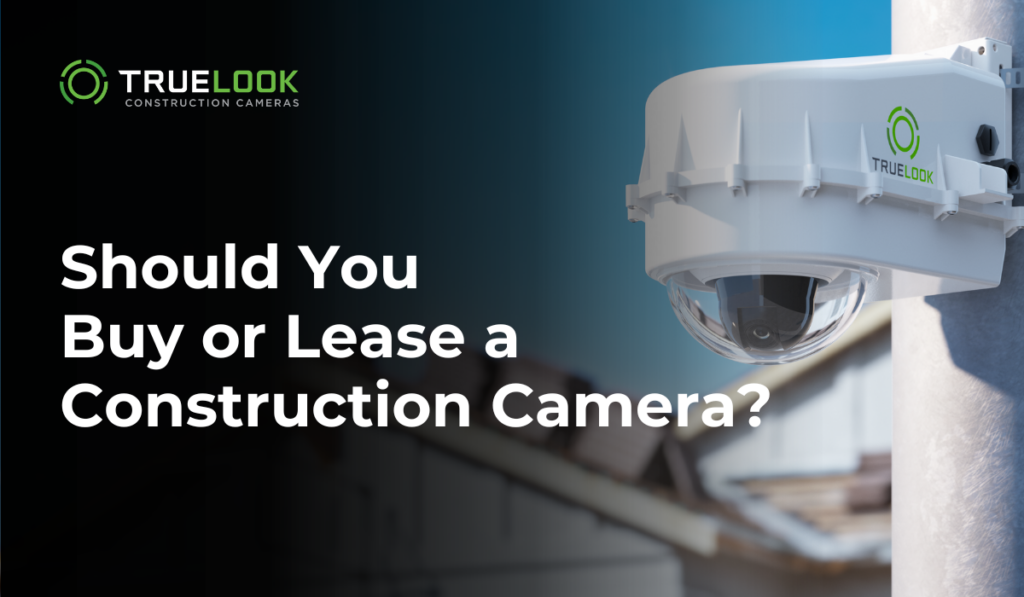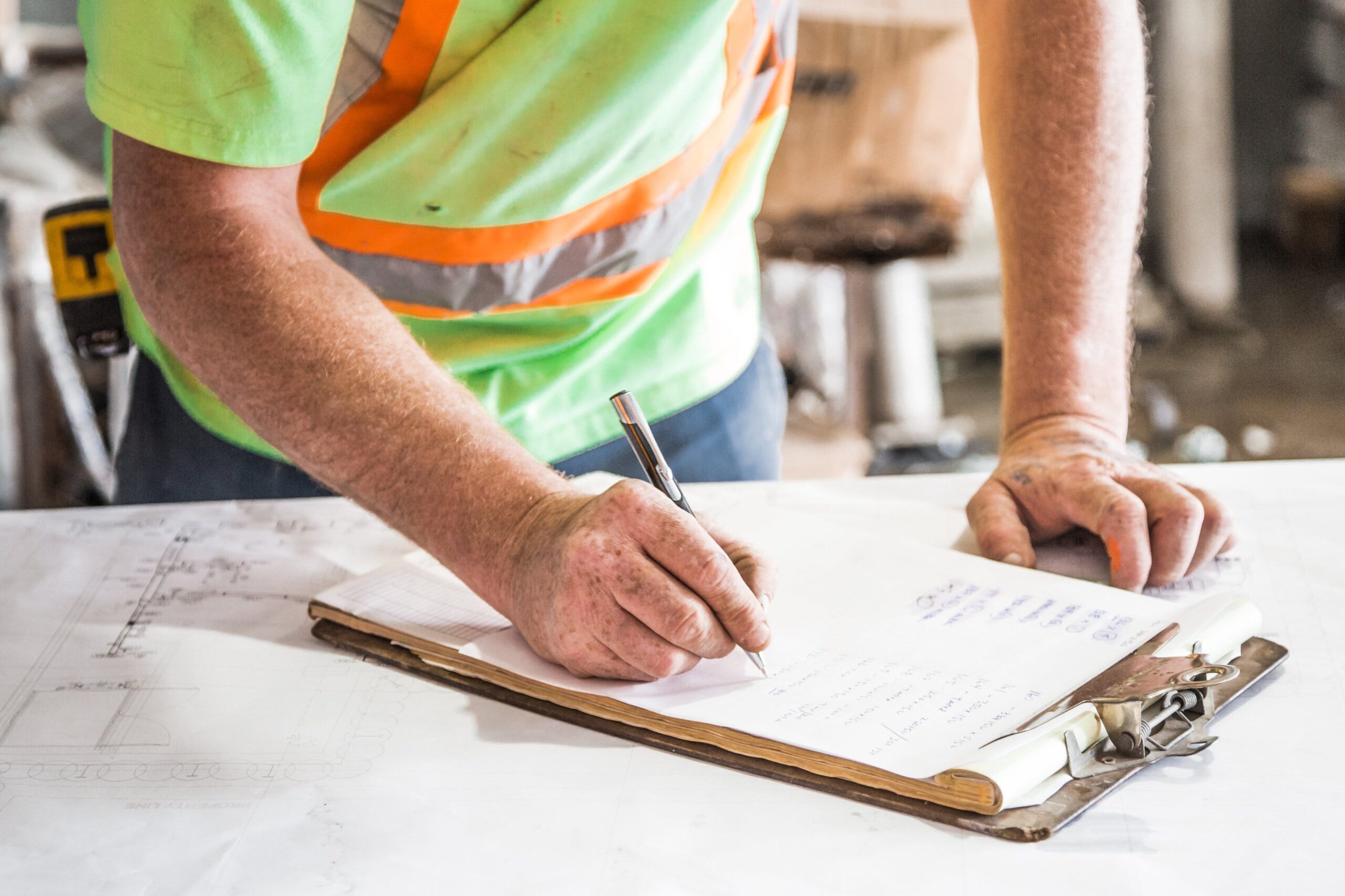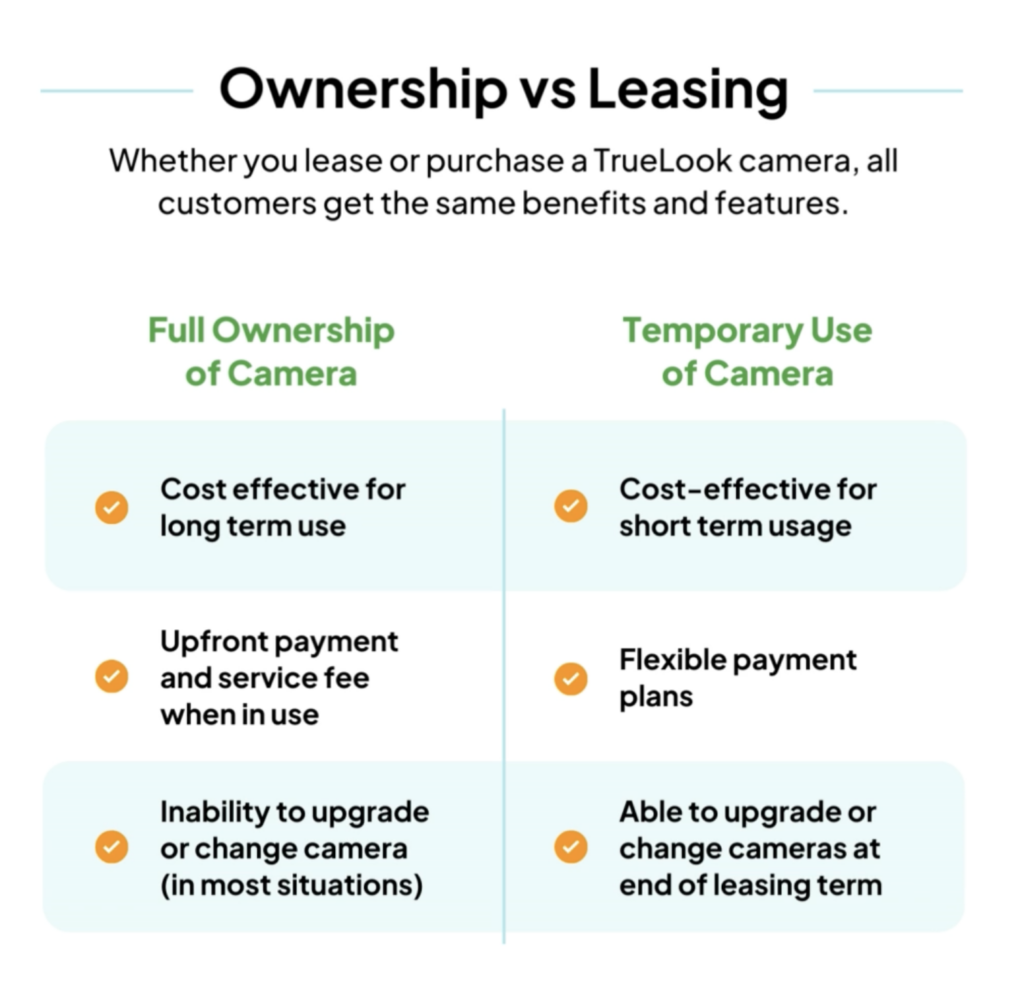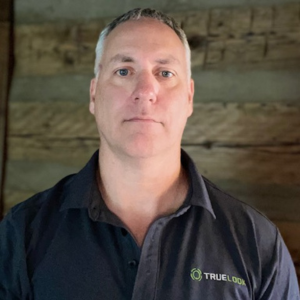
Today, construction cameras are an integral part of construction site management. Cameras enable project managers to manage their projects more efficiently and effectively by providing comprehensive documentation. This helps project managers mitigate the risk of theft and injury, track project progress, capture images and videos for marketing, and ensure better accountability across the jobsite.
When it comes to acquiring camera equipment, we often get asked one major question: is it better to rent camera equipment or buy it?
The answer is that it depends on several factors. So we’re going to break it down so you can decide whether you should lease or buy.
The Benefits of Renting Construction Cameras
The benefits of renting construction cameras (as opposed to buying) boil down to three categories: flexibility, affordability, and maintenance and management.
1. Flexibility
The first major benefit of renting camera equipment through a leasing program is flexibility. Construction camera rentals allow you to gain all the benefits of having cameras on your jobsite without a long-term commitment. That means if the needs of your project change and you need to remove or switch equipment, you can!
Consider what your current project needs are and how likely they are to change. You might also consider how important it is to you to have the most up-to-date technology.
Ask yourself:
- What are the needs of my construction project when it comes to surveillance and jobsite visibility?
- How long do I anticipate my project will take?
- Am I planning on using the cameras on multiple sites or for multiple projects?
- Will upgrading to newer technology be crucial for my project or future projects?
- Is the ability to scale up or down the number of cameras without significant financial implications important for my operations?

2. Affordability
Another major benefit, and a big reason project managers opt for renting over purchasing, is cost. On average, most camera leasing programs will enable you to cut costs. This is particularly applicable to short-term or one-off projects where you will only need your construction cameras for a brief time.
Think about your short-term and long-term needs.
- What is your budget?
- How important is cutting costs?
- Do you only need the cameras for one project?
- Are the types of cameras that you’re thinking of investing in (fixed-position, interior, pan-tilt-zoom cameras) only useful for one project, or could they be used on multiple?
3. Maintenance and Management
The last major benefit is easy management and maintenance. Many leasing programs include hands-free management services that will relieve the burden of camera maintenance in between projects. These services include ensuring leased cameras are always functioning optimally and are ready to be sent out to your next project when requested.
This option is ideal for project managers who don’t want to spend time worrying about where to store their cameras or those who don’t have the in-house technical expertise to maintain their cameras.

Benefits of Purchasing Construction Cameras
The benefits of purchasing construction cameras fall into three main categories: long-term cost-effectiveness, one-time purchasing, and easy reactivation.
1. Cost-Effective Long-Term
One of the main benefits of purchasing construction cameras is that it can lead to long-term savings. While renting cameras may be more cost-effective for short-term or one-off projects, buying cameras is far more cost-effective for longer projects or instances where you will use your cameras for multiple projects. If you’re willing and able to maintain and reinstall your cameras on different jobsites, then you can lock in some serious savings by purchasing your cameras.
Ask yourself:
- Will I use cameras for multiple projects?
- Am I willing and able to reinstall cameras on different jobsites?
- How long will my project take?
- Will it be cheaper to buy a camera in the long run?
2. One-Time Purchasing Process
One nice benefit of purchasing your construction cameras upfront is that once you do it, you’re done! Instead of having to manage lease terms or rental agreements, you can simply purchase your equipment and move on. This takes the decision-making around cameras out of the equation for any new or upcoming projects that you’ll be managing in the future, which can help you stay focused on the important work: building an awesome project.
3. Easy Reactivation
Buying and purchasing your own construction cameras can simplify the process of activating cameras for new projects. Once you’ve purchased your cameras, you can simply relocate, reinstall, and reactivate them without needing to renegotiate lease terms or acquire new equipment.
Simplify Project Documentation with Construction Cameras
Considerations for Your Decision
There are several factors to consider when choosing between purchasing your cameras or renting them through a leasing program. At the end of the day, it boils down to your short-term and long-term project needs, as well as your budget.
You’ll want to consider things like:
- How long will you need the cameras?
- How many projects do you plan to use them for?
- Are you prepared for the upfront cost of purchasing?
- How important is having the latest technology for your projects?
- Do you have the resources to maintain and manage the cameras?
TrueLook’s Leasing Program offers flexible payment plans and hands-free maintenance. With multiple upgrades to choose from and USA support, we make leasing the right camera for your project simple.
If you’re still unsure, you don’t have to make this decision alone! TrueLook’s knowledgeable sales representatives are here to help you talk through your decision.
Learn more about TrueLook’s leasing program. Learn more TrueLook’s options for purchasing cameras.

